The media is alive with reports of a potential ban on the Haqqani network and the Jamatud Dawaby the Pakistan authorities and last reports say that it has been put into effect. Similar bans on JuD, a clone of the Markaazul-Dawa-e-Ershad, the LeT’s political headquarters, were placed in 2005 and 2008 with little seriousness. The US subsequently placed a 10 million US$ bounty on Hafiz Sayeed’s head even as he cocked a snook at it. So we have a history of non-serious intent and tactical measures by Pakistan to ensure that the strategic assets it created to garner space in Afghanistan and a position of advantage in Kashmir remained uncompromised.
This ban apparently is more serious or so would even the Pakistan media have us believe. Yet, it needs deeper examination to establish Pakistan’s true position. Some factors impinging on the decision need reiteration. Firstly, Pakistan fears the rise of Modi’s India as never before and the latter’s differential with Pakistan is likely to widen in terms of strategic significance, economy and position in the international community. India is refusing to talk unless Pakistan demonstrates more positively its intent of halting cross border terror. Pakistan continues to be perceived as the core center of Radical Islamic ideology nurtured by various groups. Secondly, the Peshawar attack has brought the government and the security establishment under pressure from civil society which appears to be finding a voice after long. The Army itself felt the social pressure because the Peshawar school belonged to it and the casualties were mostly army children. Thirdly, the US leadership has to certify positive actions by the Pakistan Government in order to obtain relevant funding for programs in Pakistan which supposedly assist in its war on terror. Fourthly, the spectre of a potential entry of the Islamic State into the quagmire is a daunting threat. Lastly, the internal security situation which was perceived as manageable, even with the strategic intent being played towards Afghanistan and Kashmir, suddenly seems lesser in control. Peshawar is the symbol of the Tehreek e Taliban – Pakistan’s (TTP) continuing strength and capability.
In its decision conflict in differentiating between good and bad terrorists or target all terrorists, Pakistan possibly does not feel confident any longer in continuing to nurture the Punjab based jihadi groups. Nor does it feel comfortable with the Haqqanis because a better relationship with President Ashraf Ghani of Afghanistan seems to be emerging. This is the overall view that the Pakistan media and strategic analysts will have us believe. What is the credibility of such a paradigm shift in Pakistan’s strategic posturing is for us to further establish? The start point is the historical evidence of Pakistan’s capability to weather strategic storms around and within it. During as tectonic a shift as the post 9/11 US policy towards jihadis, Pakistan managed to nurture both the Haqqanis and the various Punjab based groups. Its experience of success against the Soviets in Afghanistan in the Eighties continues to dictate its strategic thinking and confidence. It is also a historical fact that nations do not change their basic strategy based upon single events such as Peshawar despite the huge emotional upsurge these create. That too can be weathered. Continuing opportunities which have been created in the strategic neighborhood are also not lost sight of. Twenty five years of proxy war fought in Jammu & Kashmir and many earlier years which were spent in shaping this environment cannot be switched off in future strategic planning on the basis of emerging internal threats. The US influence over Pakistan policy is bound by financial support but political support is largely that of China, Pakistan’s all weather friend. It may be worried about threats in its restive Xinjiang region but this is not as serious or significant as the opportunities coming its way in Afghanistan; nor as strategically important as the need for containment of an increasingly confident India under its new Prime Minister. So, if Pakistan has China’s backing and there are enough compulsions on the part of the US to turn a blind eye to what Pakistan does on its Eastern borders, there is sufficient reason for it to project a change of heart and strategy while continuing business as usual. It could well go soft on the Haqqanis to cosy up to Ashraf Ghani and the US while appeasing China by ensuring that its control over the JuD remains cosmetic thus allowing the JuD to continue acting as its strategic asset.
Does the decision lie solely in the hands of the security establishment? On being consulted, Shahbaz Sharif, the Punjab Chief Minister would not have wanted anything to do with buying enmity with the JuD; it is actually his strength. Besides, with the TTP’s threatening spread into Punjab, he will not wish to see another threat from the direction of JuD. What happens to the long campaign of proxy war in Jammu & Kashmir? It cannot be sustained without the JuD’s pro-active support which forms the sabre elements.
Can the civil society put sufficient pressure on the security establishment to ensure a genuine turnaround in policy? Pakistan’s civil society has had its moments of glory but for many years has been subjugated to the status of non-entity in the face of threats against scribes and moderates of every other hue. We found many emotional utterances in the wake of the horrific Peshawar killings. But when violent exchanges take place on the LoC, civil society hardly takes note or calls for an end to these exchanges, instead blaming India for the initiation. It can be thus surmised that the Pakistani civil society has yet far to go before its voice carries the strength to affect a major policy change in matters related to security.
It may be incorrect to doubt Pakistan’s intent and actions but rationality has never been one of its strengths. It could well realize the worth of taking the initiative to stabilize its internal turbulence. Unfortunately, the perceptions that the Pakistan security establishment has managed to create about itself in the eyes of the world forces any rationalist to look for more time and more careful observation before declaring Pakistan’s latest policy decisions as sincere and without malafide intent. India will definitely not be hesitant to resume engagement once the right intent has been well established.
Published Date: 24th January 2015, Image source: http://pakistanmediawatch.com
(Disclaimer: The views and opinions expressed in this article are those of the author and do not necessarily reflect the official policy or position of the Vivekananda International Foundation)

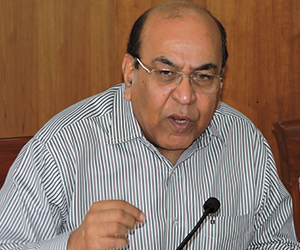

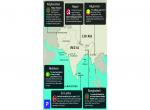
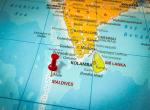


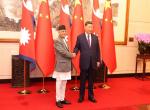
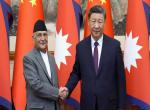

Post new comment